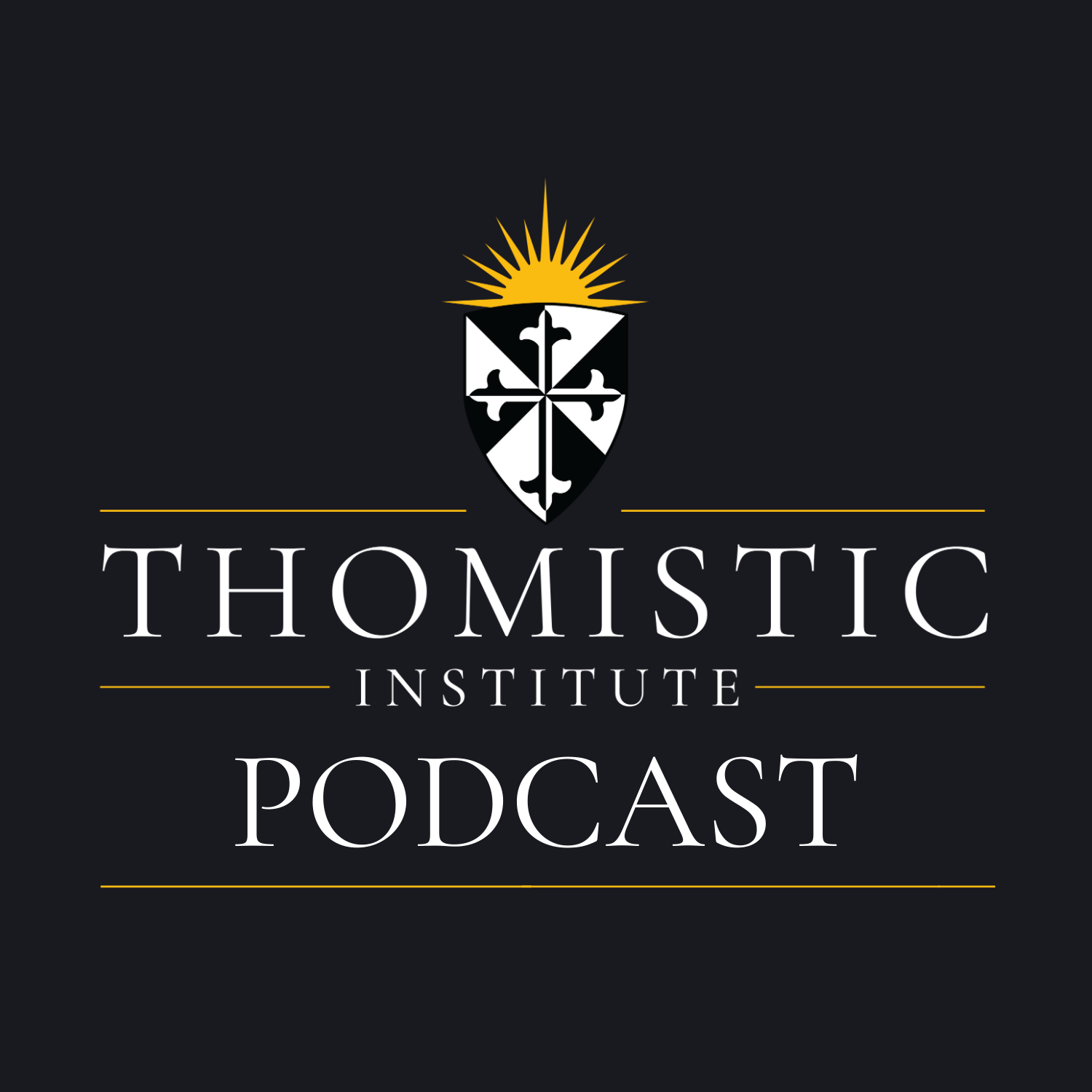

The Thomistic Institute
The Thomistic Institute
The Thomistic Institute exists to promote Catholic truth in our contemporary world by strengthening the intellectual formation of Christians at universities, in the Church, and in the wider public square. The thought of St. Thomas Aquinas, the Universal Doctor of the Church, is our touchstone.
The Thomistic Institute Podcast features the lectures and talks from our conferences, campus chapters events, intellectual retreats, livestream events, and much more.
Founded in 2009, the Thomistic Institute is part of the Pontifical Faculty of the Immaculate Conception at the Dominican House of Studies in Washington, DC.
The Thomistic Institute Podcast features the lectures and talks from our conferences, campus chapters events, intellectual retreats, livestream events, and much more.
Founded in 2009, the Thomistic Institute is part of the Pontifical Faculty of the Immaculate Conception at the Dominican House of Studies in Washington, DC.
Episodes
Mentioned books

Dec 6, 2018 • 1h 8min
"Out of this Stony Rubbish" Devastation and Rebirth in Eliot's "The Waste Land" | Thomas Pfau
Literature professor Thomas Pfau discusses T.S. Eliot's journey to faith, atheism commentary, and themes of desolation in 'The Waste Land'. The podcast explores nature depiction in Eliot's poetry, darkness, and hope in his works, as well as self-recognition and human sexuality themes influenced by Dante.

18 snips
Dec 5, 2018 • 1h 10min
The Return of the Strong Gods | Rusty Reno
Renowned author and editor-in-chief Rusty Reno discusses shifts in public consensus, critiques highbrow American press content, explores the post-WWII openness consensus, analyzes challenges of religious nationalism, delves into globalization nuances, and emphasizes the role of nationalism in shaping identities in society.

Dec 4, 2018 • 1h 18min
What Does it Mean to be Human? Neuroscience, Psychology, and Personhood | Daniel De Haan
Neuroscience and psychology expert, Daniel De Haan, discusses the concept of personhood and delves into existential questions about human existence, the significance of preparing for mortality, contrasting views on truth and personhood, and the debate between psychological and animalist perspectives on personhood. The podcast also explores human intuition, artificial creation, and the complexities of understanding the true potential of artificial intelligence and robotics.

Dec 1, 2018 • 57min
What's the Purpose of Life? | Christopher Kaczor
Philosopher and professor Christopher Kaczor discusses the pursuit of happiness beyond wealth, the emptiness of material achievements, and the link between religious participation and well-being. He emphasizes the importance of personal choices, loving relationships, and aligning pursuits with the right priorities in achieving genuine happiness.

Nov 30, 2018 • 28min
The Fellowship of Happiness: Aquinas on the Making of Good Friends | Prof. Michael Pakaluk
Prof. Michael Pakaluk, an expert in Aquinas philosophy, discusses Aquinas' perspective on friendship. They explore the essence of true friendship, distinguishing between love of friendship and love of concupiscence. The podcast emphasizes the importance of loving individuals for who they are, highlighting the rarity and depth of authentic friendships. Insights are provided on forming genuine connections, including friendship with Christ and discerning true friendships.

Nov 29, 2018 • 35min
Fundamental Questions for Ethical Decision Making | Fr. Gregory Pine, O.P.
Fr. Gregory Pine, O.P., an expert in ethical decision making, discusses exploring ethical dilemmas, historical roots of probabilism, syllogisms in decision-making, conscience significance, and the importance of prudence in aligning actions with moral standards.

Nov 28, 2018 • 1h 8min
The Wisdom of St. Catherine in Times of Crisis | Sr. Mary Madeline Todd OP
Sr. Mary Madeline Todd OP discusses St. Catherine's wisdom for modern crises. Topics include prayerful discernment, humility, courage in leadership, faith, hope, perseverance, virtues, spiritual effort, and the unconventional role of St. Catherine as a laywoman.

Nov 27, 2018 • 53min
True for Me But Not For You? Moral Relativism and Social Tolerance | Michael Gorman
Michael Gorman, an expert in moral relativism and social tolerance, explores the concept of moral relativism and its implications on social life and politics. The podcast delves into distinguishing between partial and super strong relativism and the relationship between relative morality and social tolerance. It concludes with a call for a positive view of ethics and knowing when to intervene in others' decisions to overcome moral relativism.

Nov 24, 2018 • 60min
The Rationality of Desire: A Defense of Platonism | Dhananjay Jagannathan
Dhananjay Jagannathan defends Platonism by exploring reason, desire, and ethical inquiry in Aristotelian philosophy. The episode highlights the importance of ethical understanding in transforming desires and relationships, delves into Aristotelian and Platonic viewpoints on love, desire, and ethical inquiry, and discusses the influence of societal values and the value of active reasoning in navigating life's disruptions.

5 snips
Nov 22, 2018 • 57min
To be Good is to Do the Truth | Jennifer Frey
Philosopher Jennifer Frey discusses practical truth, desire, and virtue in aligning knowledge and action for virtuous living. Topics include the interplay between cognition and desire, different kinds of judgments, intentional action descriptions, and Aquinas's teachings on virtues and practical truth.


